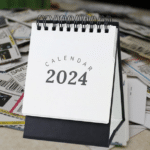
If you’ve ever been stuck in a checkout line behind a person writing out a check, you may be cheering Target’s new policy change. If you’re the person writing that check, however, you’re going to have to find another way to pay – or another place to shop.
Effective next Monday, July 15th, Target says its stores will no longer accept personal checks as payment. “Target is committed to creating an easy and convenient checkout experience, and that includes providing our guests with numerous ways to pay,” a Target company statement reads. “Due to extremely low volumes,” and in order “to aid an easy and efficient checkout experience,” those numerous ways to pay will no longer include checks.
Target isn’t alone in consigning checks to the dustbin of in-store payments history. Lidl has never accepted checks, following the lead of its small-format rival ALDI, which doesn’t either. One of the last major national chains to announce an about-face on checks was Whole Foods Market, which began phasing them out more than a decade ago.
And that was when more people actually used checks. Far fewer people do today. So Target seems unconcerned about losing any customers who still swear by their checkbook.
According to the latest annual survey by the Federal Reserve, 48% of Americans said they’ve used checks at least once over the past year. “Even in 2024, U.S. consumers and businesses have an appetite for check payments,” the Fed observed. “We love our checks, and our response to innovation has been tepid.”
But very few shoppers actually write checks in stores to pay for their purchases. A recent Javelin Strategy & Research study found that checks are the preferred in-store payment method for only 1% of all shoppers. “The persistence of paper checks in commercial payments is a glaring testament to outdated financial practices,” Javelin griped. “These checks, with their slow delivery, susceptibility to fraud, environmental harm, high processing costs, and negative impact on payee liquidity, are relics that should have been phased out long ago.”
As you might suspect, those most likely to be impacted by Target’s policy change are older shoppers who haven’t gotten on board with credit cards, let alone digital payments. In that Federal Reserve survey which found nearly half of all Americans still use checks at least occasionally, the percentage rises to 67% among Baby Boomers aged 58-76, and soars to 83% among those 77 years and up.
“My elderly mother who has been shopping at her local Target since it opened 30 years ago was told today she couldn’t pay with a check,” one concerned commenter wrote in a recent plea for help on Reddit. “She shops there 1-2 times a week and spends $50-100 on average.” That commenter wasn’t alone in discovering that some locations seem to have stopped accepting checks some time ago. “This happened today for my elderly father on a check under $40,” another commenter chimed in. “He was trying to switch from Walmart to Target for basics, and his check was definitely good, but the cashier ran it through twice to no avail… Since he’s not a debit card guy, he left and went back to Walmart.”
Target’s aim for an “efficient checkout experience” echoes comments from other retailers that have moved away from checks. “By accepting only electronic payments and cash, we will reduce wait times in line,” a Whole Foods spokesperson explained back in 2014. Accepeting checks “slows down the line and saddles us with bad check costs, so we don’t mess around with them,” ALDI’s website once explained.
Those “bad check costs” may be the real reason for rejecting checks. A recent report by the Association of Financial Professionals found that “checks continue to be the payment method most vulnerable to fraud.” For many retailers who don’t want to get stuck with bum checks from the few people who still use them, they may simply be more trouble than they’re worth.
But then it’s worth considering that Target’s decision comes at a time when many elderly and technically-challenged shoppers are already feeling left behind. Shoppers who once clipped paper coupons or scanned a plastic loyalty card to save money are now finding that more deals are digital-only and require internet access or a smartphone. That’s led to a growing backlash from those who argue such changes are unfair to those who can’t or don’t want to modernize.
Today, it’s paper checks. Tomorrow, a mainstream retailer just might announce it will no longer accept paper coupons. After all, the same argument could apply, citing “extremely low volumes” of paper coupon use, a desire to “aid an easy and efficient checkout experience,” and to reduce the retailer’s exposure to fraud.
Change is inevitable and often desirable. But it’s not always easy, or universally accepted. Target is betting that the people who will be pleased about its new check policy – or those who don’t give it any thought at all – will far outweigh those who are disappointed. And for those disappointed shoppers, there are other stores that will accept their paper checks. For at least a little while longer.
Image source: RikkisRefuge Other










